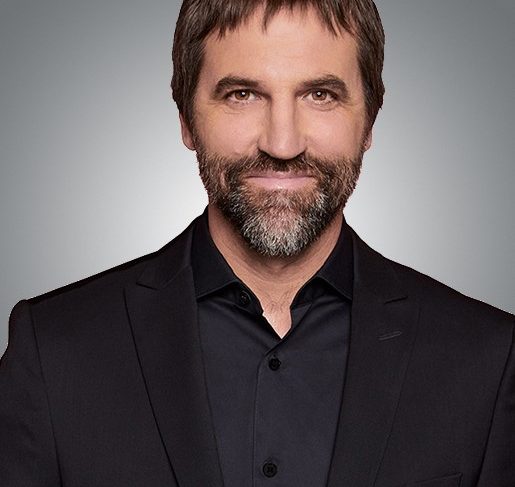
OTTAWA – Amid new portfolio names and no major change to Navdeep Bains’ duties, one big surprise in the unveiling of Prime Minister Justin Trudeau’s new post-election cabinet on Wednesday was the appointment of well-known Quebec environmentalist, anti-pipeline activist and month-old Member of Parliament Steven Guilbeault (right), as – the new minister of Canadian Heritage.
However, OUTtv CEO Brad Danks told Cartt.ca he is “cautiously optimistic” that Guilbeault’s background as a human-rights activist and reputation of being forward-thinking will help the government undertake a “complete overhaul of the broadcasting system” following the release of recommendations early next year by the Broadcasting and Telecommunications Legislative Review panel.
“He seems like a doer in life, and that’s going to be necessary,” said Danks, a former entertainment lawyer.
The Coalition for the Diversity of Cultural Expressions wasted no time in presenting its wish-list to the new heritage minister, including that the CRTC amend its digital media exemption order to enable and enforce a requirement that “programming undertakings contribute to the financing and promotion of Canadian content and deliver data on the cultural content accessed by Canadians,” the CDCE stated in a news release.
Guilbeault also needs to ensure internet and cellphone-service providers help finance Canadian content, and that all new financial contributions from online programming companies and telecommunications companies should be directed to existing cultural funds such as the Canada Media Fund, Musicaction/Factor and the Radiostar/Starmaker Fund, according to the CDCE.
“The revision of the Copyright Act must also be at the top of the new minister's priorities, including extending the private copying regime to digital media and devices that provide access to cultural content, and reducing the number of exceptions provided for in the Act. The remaining exceptions need to provide compensation for the rights holders.”
Directors Guild of Canada president Tim Southam is hopeful Guilbeault continues with the commitment his predecessor and now Government House Leader Pablo Rodriguez made before last month’s election to “loop over-the-top internet broadcasters into the Canadian ecosystem as full participants alongside the private broadcasters in this country.”
Southam sees symmetry between the “idealism” of his sector and Guilbeault’s as an environmentalist, “and we feel that we can make our case for building Canada through its media sector to someone like the minister.”
The greatest challenge that awaits Guilbeault is “the absolute transformation and complete revolution of our sector,” said the head of the DGC. “We have to come up with new tools to assert Canada’s right to support our storytellers in this new environment. We consider it fundamental to building a civil society,” Southam added.
“[Guilbeault] will have his hands full in terms of remodelling the Broadcasting Act, the Telecommunications Act and giving teeth to creators under the Copyright Act.”
There are other asks, Southam added. “We have three institutions – Telefilm Canada, the National Film Board of Canada and the CBC – which haven’t seen any significant funding increase in a decade. These are direct investors in creation across the country… Two things have to happen. Canada still has a strong role to play in financing audiovisual creation, and the distribution of those monies has to be fairer across the country,” he explained.
Friends of Canadian Broadcasting executive director Daniel Bernhard hopes the new minister can apply the passion he displayed on climate change, as head of the environmental lobby group Équiterre, to his new cabinet responsibility overseeing Canadian broadcasting.
“He has seen firsthand how oil companies can use their wealth to buy off governments and prevent them from doing the right thing,” said Bernhard. “Facebook has a bigger market cap than Exxon, BP and Shell combined, and makes the fossil-fuel industry look like a mom-and-pop shop. And Google’s market-cap is three times that of Facebook.”
“If his experience is telling truth to power and standing up to big money, he’s really got his work cut out for him.”
That work includes “ending the free ride for internet broadcasters” as Rodriguez vowed to do before the federal election, added Bernhard. “Heritage has a role to play in ending the tax-deductibility of internet advertising on Google and Facebook that is killing Canadian journalism,” he said.
“In their election platform, the Liberals also promised new obligations for the CBC but didn’t talk about they would pay for that or how the institution can be modernized, improved and better financed.”
Meanwhile, Bains becomes minister of innovation, science and industry, though his department’s name – Innovation, Science and Economic Development Canada – has yet to undergo an official name change. (Ed note: We still think Industry Canada was just fine, btw…)
The economic development portion is now under the watch of Mélanie Joly, a former heritage minister. Maryam Monsef gets rural economic development as part of her cabinet responsibilities, though it’s unclear whether rural connectivity will fall under her mandate or Bains’.
However, following the cabinet swearing-in ceremony at Rideau Hall, Bains told reporters that the government would announce “additional measures to demonstrate” how it plans to achieve the Liberal election-platform pledge to reduce cellphone bills by 25% over four years.
The government file on whether China’s Huawei Technologies will be allowed to supply Canadian wireless providers with 5G network equipment will be overseen by Bill Blair, who replaces Ralph Goodale as public safety minister.
“There are some very complex economic and security issues that need to be addressed,” Blair told reporters on Wednesday, adding that the matter will be a cabinet priority, without committing to a specific timeline.
Also shuffled into a new job was Joyce Murray, who served as Treasury Board president before the election and is now minister of the newly created digital government portfolio where she will head Shared Services Canada.


